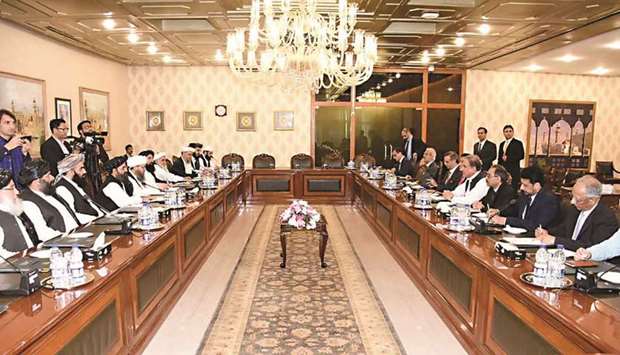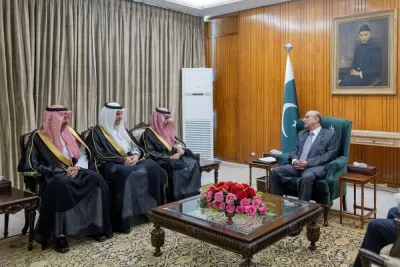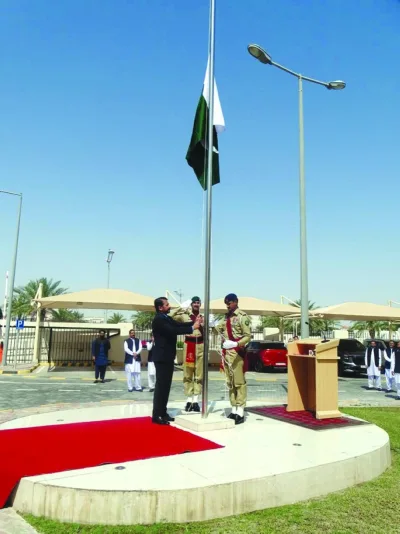Donald Trump can claim to have a nodding acquaintance with cutting a deal. After all, he co-authored the 1987 The Art of The Deal – part memoir, part business-advice book – with journalist Tony Schwartz, and which apparently, announced his shrewd capital to most Americans, if not the world.
However, it would seem the Taliban have either not heard of it or don’t set too much store by it. To be fair to Trump, they have tested the mettle of mightier negotiators and held their own against war machines the like of which the world hasn’t seen for nearly two decades. If there’s something they have in reserves which trumps brute military power, it is the nagging ability to bide time and wait in on their perceived enemies in classic warfare.
And so, despite the earlier bombast about annihilating them, the Trump administration – much to its chagrin, but like its predecessors chagrin has had to come around and try to negotiate a settlement of the Afghan imbroglio. It has proved elusive so far, but his keenness – desperation, to others – is apparent despite a sudden halt to the negotiations last month after a bombing in Kabul killed an American soldier. This happened as Trump was readying to host, by his admission, a secret Camp David rendezvous that would have reportedly brought “major leaders” of the Taliban face-to-face with Afghan President Ashraf Ghani, who, the militia have until now refused to acknowledge as legitimate partners in the negotiations.
The drive was kicked into high gear last year in December when President Trump wrote to incumbent Pakistan Prime Minister Imran Khan, seeking Islamabad’s help to bring the Taliban to the negotiating table as it eyed a troop pullout from Afghanistan following a draining war that has cost the US an estimated $975bn until now, according to The Balance website. The Balance is renowned for expertise in the field and is engaged monthly by 24mn visitors. Its research data – reported by Forbes – indicates that the US was spending an annual budget of $52bn by 2018, to stay in business.
President Trump is widely known to have tired of America’s longest war – and the most costly since the inflation-adjusted $4.1tn spent in World War II – and would rather get into a re-election bid for the White House next year with the ‘trophy’ of bringing his servicemen back home safely.
Washington would, of course, retain an essential contingent to help with the rehabilitation process in the post-pullout scenario. Currently, there are approximately, 14,000 US troops on the ground in non-combative role, but the Trump administration wants to pull out the troops from its five bases in Afghanistan.
Some 2,400 US troops have been killed since the American invasion of the war-torn country in 2001, including 16 this year, according to Al Jazeera.
After several months, the talks reached an advanced stage and the extensive round in Doha recently paved the way for an impending peace deal. Qatar, as always, was instrumental in taking the process forward by playing the role of a peacemaker in graciously hosting the partners to help them find a durable and peaceful solution to the conflict in Afghanistan.
Just when an agreement appeared in sight with US Special Representative on Afghanistan Reconciliation Zalmay Khalilzad even going on record about a deal “in principle”, and the withdrawal of 5,000 American troops within 135 days of it becoming final, the Kabul bombing early last month so incensed President Trump that he cancelled the reported final negotiation in Camp David.
Given to form, he tweeted the talks were “dead” and vowed no negotiations hence.
However, as predicted by many pundits at the time, there are strong indicators of an impending official resumption of talks after a flurry of activity in Islamabad last week which first saw Pakistan Foreign Minister Shah Mehmood Qureshi hold talks with a Taliban delegation led by the co-founder of the group, Mullah Abdul Ghani Baradar, even though for official purposes, the talks were said to be wide-ranging including the fate of more than 1.5mn Afghan refugees in Pakistan, and then, Khalilzad meeting the group.
It was no coincidence that the US envoy, who has held nine rounds of talks with Taliban negotiators during the past year, spent considerable time in Islamabad meanwhile, meeting senior Pakistani officials in what the US Department of State described as follow-up meetings to the ones held in New York during the UN General Assembly session last month.
Prime Minister Imran Khan, who is a longtime proponent of a settlement away from the battlefield, had then, pronouncedly pushed with President Trump for the resumption of the dialogue, reasoning that there was no military solution to the problem. During his dozens of meetings with key US stakeholders and interaction with think-tanks on the New York circuit, he had vocally advanced his favoured mantra.
The Taliban, which was also unrelenting in sticking to its stand after the Kabul fiasco – at least publicly – has been working the windmills to find a meeting ground. Its delegates have visited China, Russia and Iran in the weeks following Trump’s sudden red card.
Few details have emerged following Khalilzad’s “informal” meeting with the Mullah Baradar-led Taliban delegation in Islamabad, and then, too from an unidentified Taliban member of the delegation, who was not authorised to speak. The State Department and Taliban spokesperson have both refused to comment. But there are strong indicators that a resumption may be in the works, including the presence, at the time, in Islamabad, of the Commander of US-led mission in Afghanistan, General Austin Miller, according to The New York Times, though it is unclear if he attended the “informal” session.
However, given how fragile even the semantics are, Afghan President Ashraf Ghani sacked his foreign ministry spokesperson Sibghatullah Ahmadi after he welcomed Pakistan’s talks with the Taliban to push the peace process forward. Ahmadi has since been referred for prosecution. Until now, the Taliban refuse to accord any recognition to the government in Kabul, which is wary of any settlement without its participation.
The writer is Community Editor. He may be reached at [email protected]

Re-engagement: Pakistan Foreign Minister Shah Mehmood Qureshi (fourth right), with the Taliban co-founder Mullah Abdul Ghani Baradar (fourth left) and his delegation at the Pakistan Foreign Ministry in Islamabad last Thursday.



